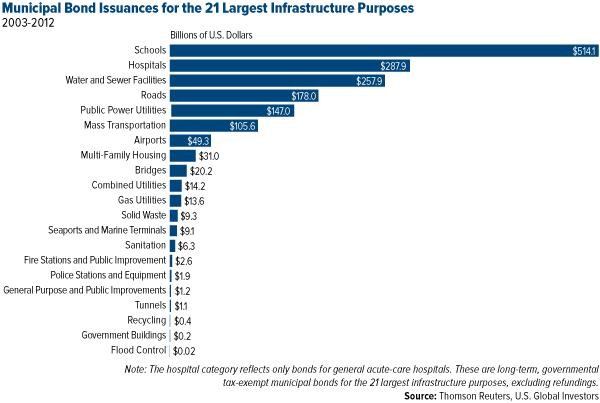3 Reasons Why It s A Bad Idea To Invest In Municipal Bond Funds
Post on: 5 Сентябрь, 2015 No Comment

How often have you heard in your investing lifetime that you should invest in mutual funds instead of individual stocks ?
Probably just about every time you’ve talked about buying an individual stock. especially a large investment .
The reason why this advice is common is because if you invest a large amount in one stock. what happens if the company declares bankruptcy or the price drops dramatically? You could be out a lot of money — whereas if you’re invested in a mutual fund. you are invested in a lot of companies that are selected by a professional mutual fund manager. Thus, there’s less likelihood of you losing everything.
However, this rule doesn’t necessarily apply to bonds. You can actually be making a mistake by not investing in individual municipal bonds .
Leslie Beck, a bond expert based in Palo Alto, California, explains why:
When you own an individual bond. you generally get your money back when the bond hits its maturity date. In the meantime, you earn interest. If you buy bonds in funds. most bond funds do not guarantee principal return. The reason is you’re buying shares of bonds. Bonds are continually added and sold within the fund ‘s portfolio. This means low-interest earning bonds can lose principal because they’re not worth as much when interest rates rise, and they can be sold before hitting their maturity dates in bond funds. Beck says she expects interest rates to rise over the next five years.
The interest rate earned is the income Beck’s clients get from the bond. The municipal bonds she chooses earn interest tax free — a big bonus if you live in a state such as California or New York with a high income tax rate. You aren’t guaranteed the interest rate as you would be with an individual bond. Granted, with interest rates the way they are, this isn’t a big concern. But when they rise it will be. Caution: Municipal bonds are generally only tax-free if purchased from your own state.
3. Municipal Bonds Offer More Choice On Investment Length
You don’t want to get stuck in a long-term bond fund or individual bond if interest rates change. For her clients, Beck generally recommends the following based on length of time for her clients: When rates are rising, you want to stay in the short to intermediate range. Right now, I would buy one to five years, she says. When rates rise above 3% for that range, I will probably extend to seven years, and if I can get 4% or higher, move to 10 years.
The Exception.
If you can get into a special kind of municipal bond fund where the interest rate is frozen for the length of the investment. that is not a bad deal. You’re diversified among multiple bonds while also securing your principal and interest rate. The municipal bonds within the fund do not change, getting bought or sold, throughout the term of the investment.
The Investing Answer: Investing in individual municipal bonds should only be done with an advisor who understands this type of investment. Because of the complexity of this type of investment, Most financial advisors have to rely on mutual funds to invest in municipal bonds, says Beck, who has bought individual municipal bonds since 1987, she says. You’re trusting an advisor to both pick bonds for you as well as create a diversification strategy. Ask advisors about their experience before you buy municipal bonds through them.
P.S. — How are ordinary investors generating a second income month after month and year after year? In short, it’s thanks to a new approach to investing. It’s a discovery I call The Dividend Trifecta , and it’s helping thousands of regular people live the life they want without the worries of a volatile stock market. Find out about this amazing strategy here .














